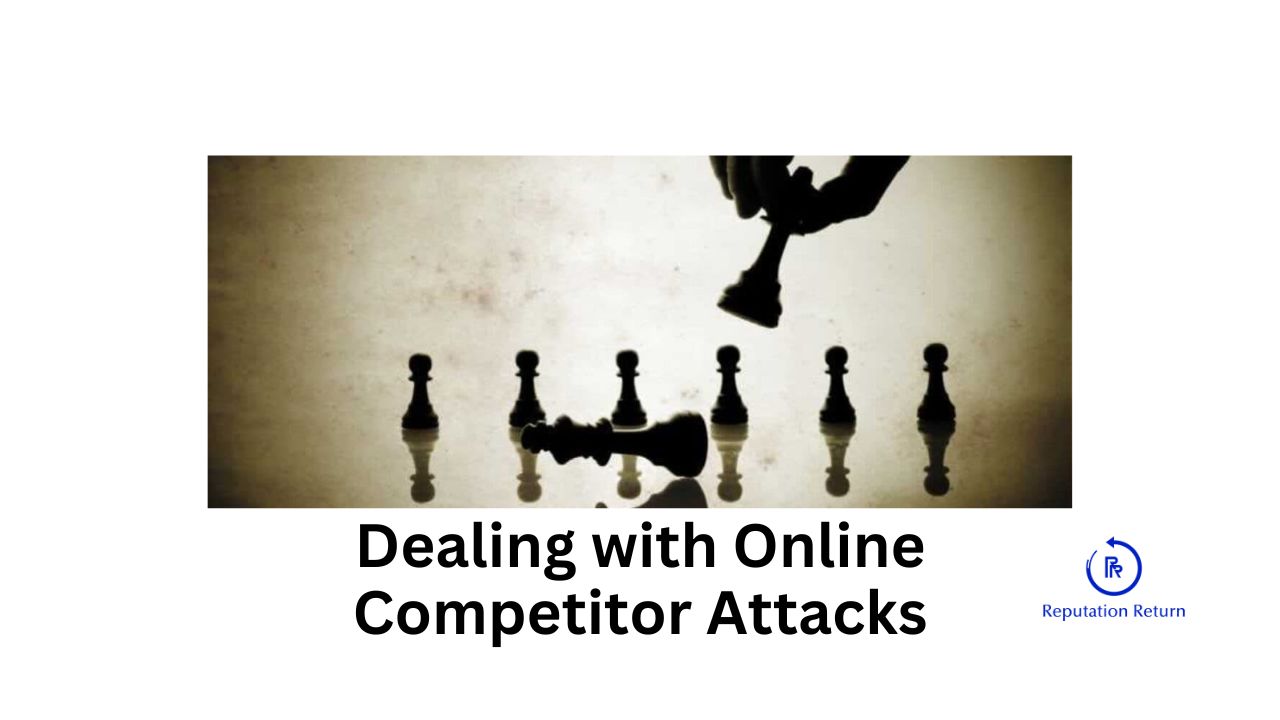Today, businesses like yours are increasingly vulnerable to online competitor attacks. These attacks can manifest as negative reviews, false accusations, or smear campaigns designed to tarnish a company’s reputation. The impact of such attacks can be profound, affecting customer trust, sales, and overall brand equity. To combat these challenges, online reputation management (ORM) has emerged as an essential tool for brand recovery. This lesson delves into the nature of online competitor attacks and how ORM can help businesses navigate and recover from these challenges.
Understanding Online Competitor Attacks
1. Types of Attacks:
- Negative Reviews: Competitors may post fake negative reviews to dissuade potential customers.
- False Accusations: Spreading false information about a company’s products, services, or business practices.
- Smear Campaigns: Coordinated efforts to damage a brand’s image through social media, forums, and other online platforms.
2. Impact on Businesses:
- Customer Trust: Negative information can erode customer confidence.
- Sales Decline: Potential customers may choose competitors due to tarnished reputation.
- Search Engine Rankings: Negative content can affect a company’s visibility in search results.
The Role of Online Reputation Management
ORM involves monitoring, identifying, and addressing negative content about a business or individual on the internet. It encompasses various strategies and tools designed to protect and restore a company’s online image.
1. Monitoring and Analysis:
- Continuous Monitoring: Utilizing tools to track mentions of the brand across various platforms, including social media, review sites, and forums.
- Sentiment Analysis: Assessing the tone of online mentions to identify potential threats.
2. Strategic Response:
- Addressing Negative Content: Responding promptly and professionally to negative reviews and false accusations. We help you with this process.
- Legal Action: Considering legal avenues for defamatory content that violates laws.
3. Content Creation and Promotion:
- Positive Content Generation: Creating and promoting positive content about the brand to overshadow negative information.
- SEO Strategies: Using search engine optimization to ensure positive content ranks higher than negative content in search results.
4. Engaging with Customers:
- Transparency: Maintaining open communication with customers to build trust.
- Customer Service: Providing excellent customer service to turn negative experiences into positive ones.
Implementing a Crisis Management Plan
A crisis management plan is crucial for businesses to quickly and effectively address online competitor attacks. Here’s how to develop and implement one:
1. Preparation:
- Risk Assessment: Identify potential risks and vulnerabilities.
- Policy Development: Create policies for responding to different types of attacks.
2. Response Team:
- Assemble a Team: Form a dedicated team to handle online reputation crises.
- Training: Ensure team members are trained in ORM best practices and crisis communication.
3. Response Strategy:
- Immediate Action: Quickly address negative content and communicate with stakeholders.
- Consistent Messaging: Ensure all responses align with the company’s values and messaging.
4. Post-Crisis Analysis:
- Evaluate Response: Analyze the effectiveness of the response and identify areas for improvement.
- Update Plan: Revise the crisis management plan based on lessons learned.
Real-World Examples
Case Study 1: Retail Chain Attack A well-known retail chain faced a coordinated smear campaign by a competitor, involving fake negative reviews and false accusations of poor labor practices. The company implemented an ORM strategy that included legal action, transparent communication with customers, and promoting positive employee testimonials. This multi-faceted approach helped restore customer trust and improved their online reputation.
Case Study 2: Tech Start-Up Attack A tech start-up experienced an online attack with false accusations about data security breaches. The start-up’s ORM team quickly identified the false information, responded with clear and factual statements, and promoted their security protocols through blog posts and press releases. The proactive approach mitigated the damage and reinforced their commitment to data security.
Online competitor attacks are an unfortunate reality, but businesses can effectively combat these threats with a robust online reputation management strategy. By continuously monitoring their online presence, responding strategically to negative content, creating and promoting positive content, and engaging transparently with customers, businesses can protect and restore their brand’s reputation. Implementing a well-prepared crisis management plan further ensures that companies are ready to handle any online attacks swiftly and effectively, safeguarding their brand’s integrity and long-term success. Questions? Go here >>>

